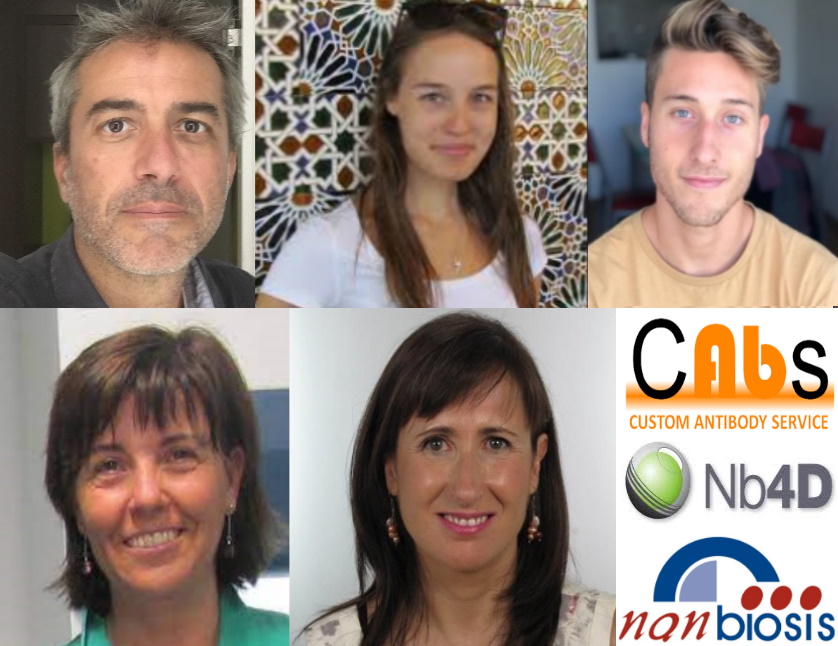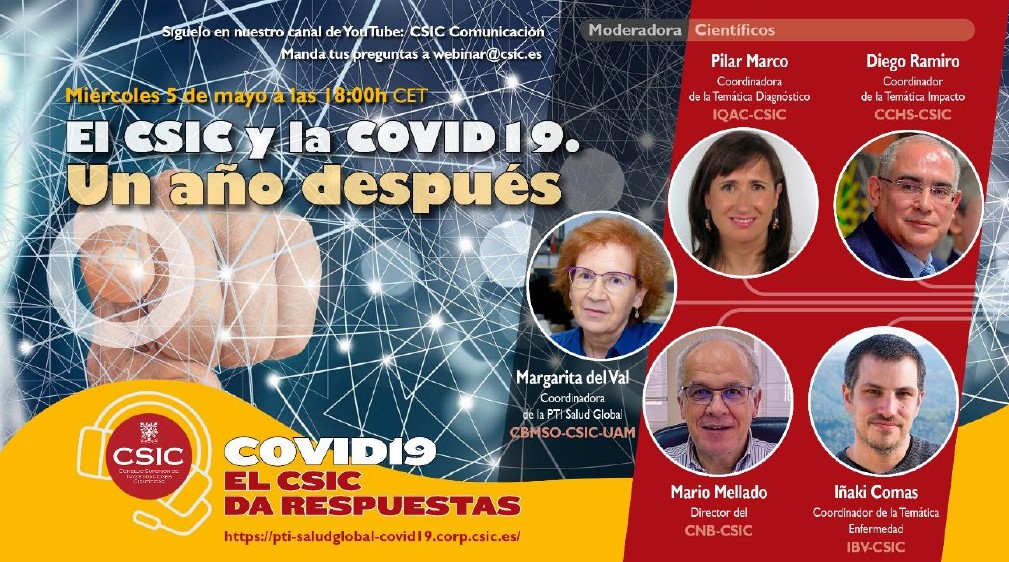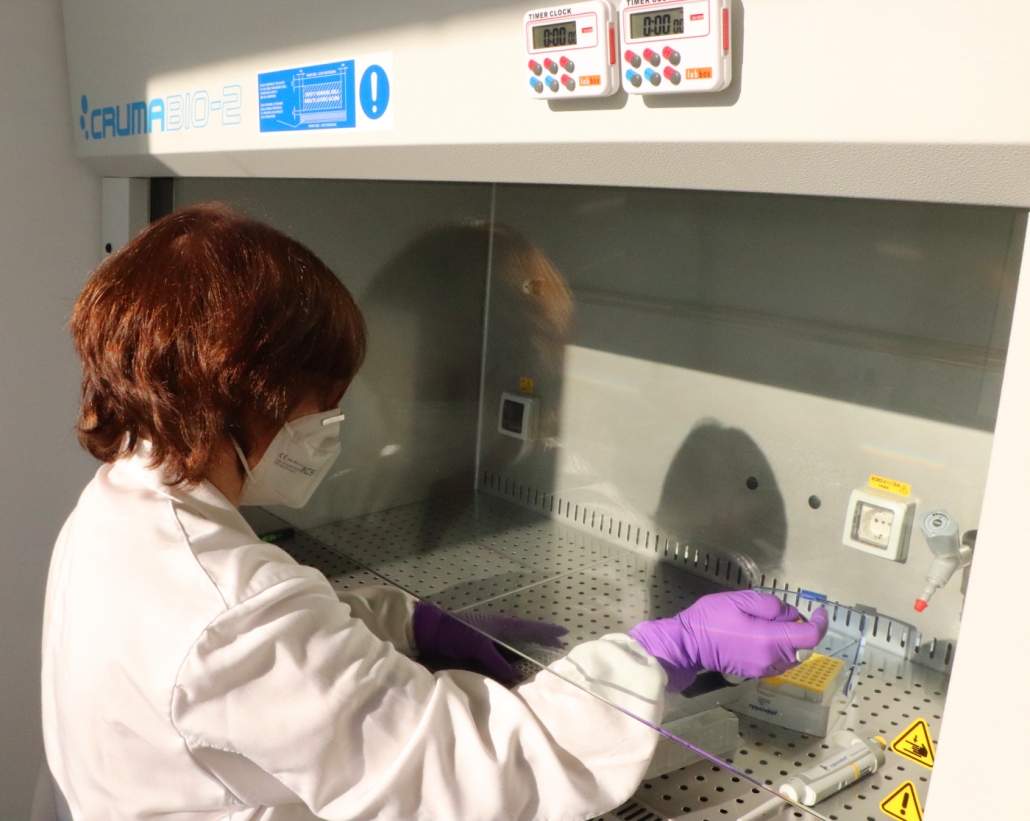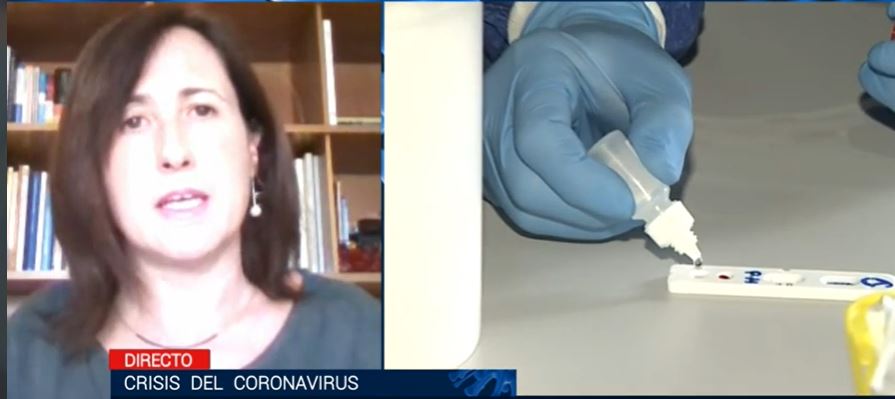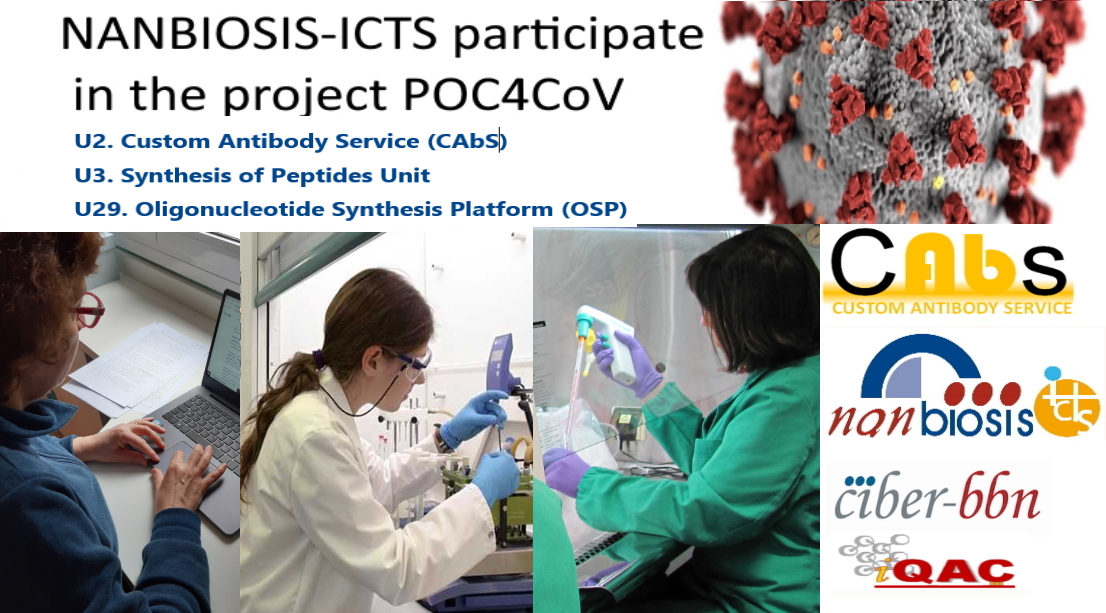High quality antibodies for very challenging projects
Researchers of Nb4D group – Unit 2 of the ICTS NANBIOSIS (led by Pilar Marco, from CIBER-BBN and the IQAC-CSIC) have participated in Expoquimia 2021, the International Chemistry Meeting, which took place from 14 to September 17 at the Fira de Barcelona.
The researchers presented their work in several projects: the FoodSmartPhone project (MSCA-ITN-720325 action), the QS4CF (RTI2018-096278-B-C21), the QS-Motion (TV32018-201825-30-31) and on the PoC4CoV project (PIE-202050E090; PTI Salud Global, CSIC).
Research at the FoodSmartPhone(MSCA-ITN-720325 action) is focus on developing devices for the monitoring of contaminants of interest in food safety through the use of mobile phones. The production of the necessary antibodies for the detection of antibiotics and pesticides has been carried out by NANBIOSIS U2 Custom Antibody Service (CAbS). These are very specific monoclonal antibodies against pesticides, used by researchers Klaudia Kopper and Julian Guercetti to bind them to the functionalized surface and implemented in plasmonic detection sensors for antibiotics in milk and electrochemical biosensors for the detection of pesticides in cereals.
The scientific activity within the QS4CF (RTI2018-096278-B-C21) and QS-Motion (TV32018-201825-30-31) is focused on the Quorum Sensing communication system as an strategy to develop more efficient and specific diagnostic tools and therapeutic approaches to diagnose and treat P. aeruginosa and S. aureus infections.
The PoC4CoV project (PTI Salud Global, CSIC) seeks a comprehensive approach to diagnose COVID-19 developing devices to detect genetic material and proteins of the SARS-CoV2 virus, but also the response of the host against the infection. High quality antibodies against SARS-CoV-2 structural proteins (spike and nucleocapsid) have been produced by CAbS at NANBIOSIS
The camera flash is able to excite the functionalized surface of the chip and generate the specific response to the contaminant. This signal is picked up by the mobile through a Bluetooth connection and quantified.
